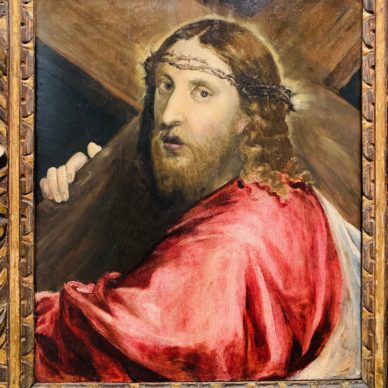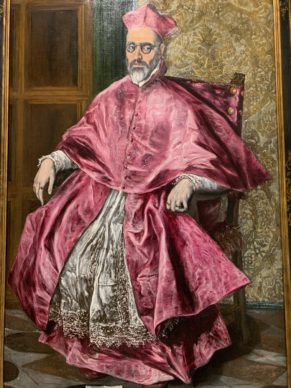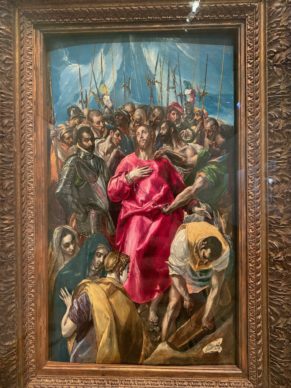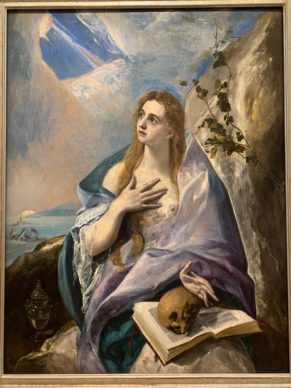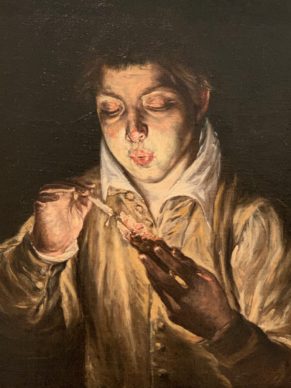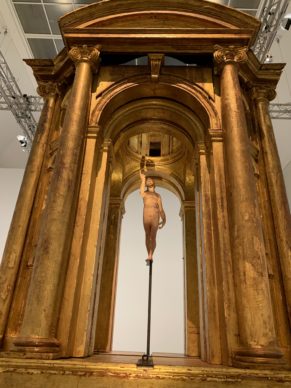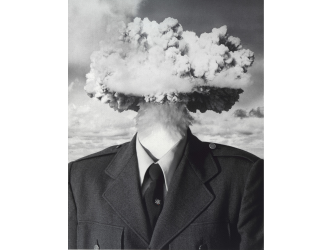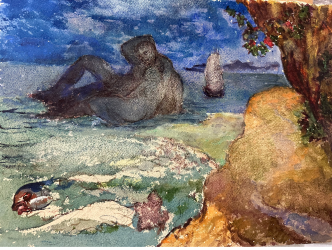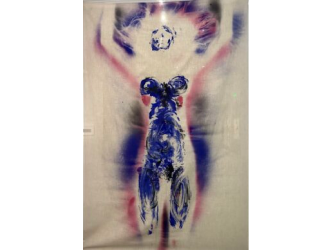The question of autorship
The problem with exhibitions devoted to the old masters is that you never really know what you’re looking at. Works from this era are constantly being contested and the field itself is rife with subtle disputes over the authorship of artworks, the presence of the artist’s hand or studio, or the significance of restorations, which change the nature of a painting.
The National Gallery and the Louvre
There are, however, certain institutions like the National Gallery in London and the Louvre which consistently offer guarantees of quality.
At the Grand-Palais
This season it seems we can add to this a very beautiful exhibition at the Grand Palais dedicated to one of the old masters who is revered by modernity, Domenikos Theotokopoulos, otherwise known as El Greco (1541-1614).
Guillaume Kientz
It’s been organized by the young and brilliant Guillaume Kientz, a French expat curator at the Kimbell Art Museum in Fort Worth. He claims that here his drastic selection gets rid of any problems of attribution, although this seems very difficult since in parallel to El Greco’s “creative” output the painter had a successful business in Toledo painting all kinds of saints for all kinds of private altars.
Art history anomaly
To contemporary eyes, the artist born in Crete (hence his nickname) is a real art history anomaly, painting in an expressionist mode.
Cézanne, Picasso and the expressionists
By stretching his figures towards the heavens, he gives shape to their desire for mystical elevation by giving them an appearance that we’d only see again in the late 19th and early 20th centuries, with Cézanne, Picasso and the German expressionists who took inspiration from him. This exhibition once again reinforces this impression of modernity with its sixty-nine paintings arranged without the usual dramatic effects, hung on white walls with stark lighting.
A real old master
And it makes a big impact. As the curator explains, “El Greco is, in fact, completely of his time.”
Italian mannerism
He’s an heir to the Italian mannerist style of the Renaissance (he spent time in Venice and Rome), which tends to use stylized representations to accentuate effects rather than sticking to realist precision.
Venetian colours
n terms of colour his influence is totally Venetian, the forms revealed through the application of colours instead of preliminary drawings.
Icons
But we must remember that El Greco started out painting icons and by virtue of this he also appreciates big effects of the light.
Michelangelo
Out of all these painterly experiences emerge exceptional works with colours that are at times very bright, inspired by, among other things, the frescoes of Michelangelo’s Sistine Chapel. See his penitent Mary Magdalene from Budapest in blues and pinks.
Hieronymus Bosch
His extraordinary crowd scenes resemble those of Hieronymus Bosch, like “The Dream of Philip II” from the Spanish royal collections. His mastery of the chiaroscuro technique is on full show in “The Fable”, depicting two young boys and a monkey gathered around the light of a candle.
Fusion of art history
El Greco is a fusion of various major currents in art history, who would himself give rise to significant new modes of expression when the painter who ended his days in Toledo was finally rediscovered in the mid-19th century.
Greco. Until 10 February. Paris. www.grandpalais.fr
The exhibition El Greco- Ambition and defiance, will be at the Art Insitute, Chicago from 10 March 2020.
Support independent news on art.
Your contribution : Make a monthly commitment to support JB Reports or a one off contribution as and when you feel like it. Choose the option that suits you best.
Need to cancel a recurring donation? Please go here.
The donation is considered to be a subscription for a fee set by the donor and for a duration also set by the donor.


